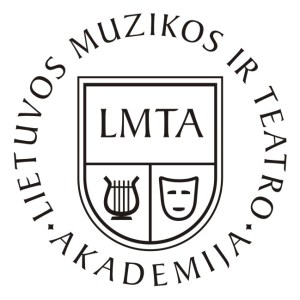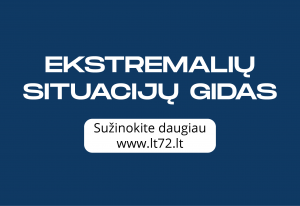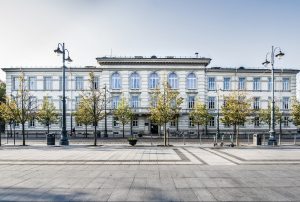Covid-19, emergencies
On May 1, Lithuania ends the extreme situation, a legal regime related to the beginning of the coronavirus pandemic. Self-isolation is no longer compulsory even after a positive Covid test.
The following recommendations remain: Mask-wearing in mass gathering venues, hand disinfection, ventilating the premises, and staying at home upon feeling the symptoms of a common cold.
2022 05 02
April 4 certain changes to the management of Covid-19 enter into force:
- Mask-wearing in public places is recommended but no longer legally enforced. As a result, at mass gatherings events where it is difficult to ensure safe distance of 2 meters, it is recommended to wear a face mask or a respirator.
- Self-isolation of persons who have been tested positive for Covid-19 is reduced to five days. The need for longer self-isolation can be prescribed by your physician after assessing the patient’s health.
- Recommendations to disinfect hands, ventilate indoor areas, and stay at home if you feel any symptoms of a cold remain in force.
After declaring a state of emergency in Lithuania (from February 24 to March 10), we invite you to get acquainted with the guidelines for emergency preparedness on the website www.lt72.lt.
2022 02 28
From 23 February, self-isolation applies only to persons with a positive PCR/antigen test or persons suspected of having COVID-19 who are waiting for the test results.
Persons who have had contact with an infected person do not have to self-isolate. It is, however, recommended to, where possible, work remotely, observe your health, take rapid antigen tests, avoid physical contact with other persons, and wear respirators or medical masks.
2022 02 24
Following the Government’s decision as of 5 February 2022, the requirement for the Opportunity Pass to access shops, entertainment and other public venues is suspended. So is the periodic testing of employees.
The major measures for infection control and people’s safety remain in force:
- hand disinfection;
- indoors, it is mandatory to wear a medical mask or respirator and, where possible (considering the specifics of the activity), keep a 2-metre distance;
- at events, wearing a respirator is mandatory;
- the premises have to be ventilated and disinfected. Any inventory used for classes has to be cleaned and disinfected after each use;
- if you feel any symptoms of acute upper respiratory infection (such as fever, cough, difficulty in breathing, etc.), you must not to work in or enter enclosed areas.
A reminder for the self-isolation procedure:
- In a case of COVID-19, the person who has tested positive must self-isolate. The period of self-isolation is determined and interrupted by the family doctor.
- Persons living in the same household with the person who tested positive (regardless of their immunisation status, i.e., including vaccinated persons) or persons who have had close contact at work with the person who tested positive at a distance within 1 m and for longer than 4 hours must self-isolate for 7 days.
If the person living in the same household has been in contact with the person who tested positive, the isolation period starts on the date of receiving the positive PCR test results. For persons who have had contact with the person who tested positive at the workplace or educational institution, the isolation period starts on the date of the most recent contact.
- Self-isolation rules do not apply if the contact with the person who tested positive was for a shorter period than 4 hours or at a distance more than 1 m. However, it is recommended to start working from home and to take rapid LFD tests three times: immediately after becoming aware of the contact with the person who tested positive, the second test within the period of 48-72 hours, and the third one 48 hours later.
- Self-isolation and testing are not required for persons who had COVID-19 less than 90 days prior to the contact.
Everyone who is a contact of someone who tested positive, upon the end of the self-isolation period or in cases where self-isolation is not applied, within a 10-day period since the last day of the contact, must wear a medical mask or respirator. Such persons must not attend events or venues of mass gatherings.
2022 02 07
We would like to announce an important update following the new legislation coming into force from 17 January 2022.
- The person who has tested positive COVID-19 must self-isolate. The period of self-isolation is determined and interrupted by the family doctor.
Persons living in the same household with the person who tested positive (regardless of their immunisation status, i.e. including vaccinated persons) or persons who have had close contact at work with the person who tested positive at a distance within 1 m and for longer than 4 hours must self-isolate for 7 days. If the person living in the same household has been in contact with the person who tested positive, the isolation period starts on the date of receiving the positive PCR test results. For persons who have had contact with the person who tested positive at the workplace or educational institution, the isolation period starts on the date of the most recent contact.
- Self-isolation rules do not apply if the contact with the person who tested positive was for a shorter period than 4 hours or at a distance more than 1 m. However, it is recommended to start working from home and to take rapid LFD tests three times: immediately after becoming aware of the contact with the person who tested positive, the second test within the period of 48-72 hours, and the third one 48 hours later.
- Self-isolation and testing are not required for persons who had COVID-19 less than 90 days prior to the contact.
Everyone who is a contact of someone who tested positive, upon the end of the self-isolation period or in cases where self-isolation is not applied, within a 10-day period since the last day of the contact, must wear a medical mask or respirator. Such persons must not attend events or places of mass gatherings.
Respirators
- Another major update is the wearing respirators at closed-space events (exams). Throughout the event in closed areas, all the audience and participants over 6 years of age and the staff servicing the event must wear a respirator of at least of FFP2 protection level that clings to the wearer’s face and completely covers their nose and mouth.
18 January 2022
Dear Members of the Lithuanian Academy of Music and Theatre Community
Following the decision by the Minister of Health of the Republic of Lithuania — State-Level Emergency State Operations Manager coming into force on 15 November 2021, all LMTA staff members, students, children over 6 years old upon entering the LMTA premises (offices, work areas) and closed common areas (hallways, staircases etc.) as well as during live meetings of various nature are required to wear medical masks or respirators that seal tightly onto the face and completely cover the nose and mouth.
The requirement to wear a medical mask will not apply to:
- persons with disabilities who cannot wear a mask due to health condition or where wearing a mask may adversely affect the person’s health (instead, wearing a face shield is recommended);
- close-space work areas where the work area (office or any other work area) is occupied by a single staff member or where the cubicles have partitions of at least 140 cm high.
The requirement to wear medical face masks may be waived where during a class a safe distance of at least two metres between teachers and students or where the activity is impossible to be performed if wearing a mask.
15 November 2021
We would like to inform you that from 1 September 2021, the studies and non-supervised practice of the students on the LMTA premises will take place in its usual manner following the established schedule without any limit made to the contact hours.
 To ensure safety of the LMTA community under the circumstances of the COVID-19 pandemic and in accordance with Order No. 71-SE of the LMTA Rector and the Resolution by the Government of the Republic of Lithuania of 11 August 2021, the study process is to be organised as follows:
To ensure safety of the LMTA community under the circumstances of the COVID-19 pandemic and in accordance with Order No. 71-SE of the LMTA Rector and the Resolution by the Government of the Republic of Lithuania of 11 August 2021, the study process is to be organised as follows:
* Practical individual classes and practical classes with small groups of students are organised only in the face-to-face mode.
* On the LMTA premises, non-supervised individual student practice and that of small groups of students is allowed.
* The organisation of theory classes for student groups as well as ensuring the safety of students and teaching staff is delegated to the deans of the faculties.
Please note that only persons who meet the criteria of the National Certificate (the Opportunity Passport) can participate in the face-to-face format activities (to get more information on the Opportunity Passport, please see HERE)
We hope that the need for the face-to-face format has encouraged all of us to get vaccinated during the summer. If you have not yet had a possibility to ensure a safe environment for your studies, we would like to encourage you to do it now.
Information about vaccination in Vilnius is available here. The nearest vaccination point can be found in Lukiškiai Square.
Information regarding vaccination in Klaipeda is available here.
The LMTA infrastructure staff and the administrative staff of our faculties are going to take care of the safety of all of us by ensuring adequate hygiene prerequisites for the LMTA community working or studying on the premises of the Academy and providing necessary personal protective measures.
Let us welcome a new academic year by staying healthy, safe, and taking care of each other!
18 August 2021


